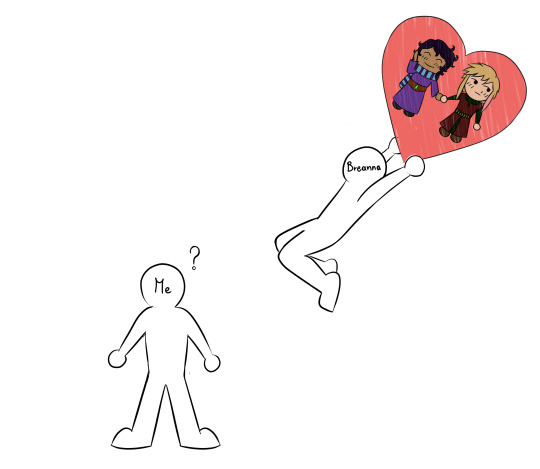#link taxes
Text
Everything advertised on social media is overpriced junk

In “Behavioral Advertising and Consumer Welfare: An Empirical Investigation,” a trio of business researchers from Carnegie Mellon and Pamplin College investigate the difference between the goods purchased through highly targeted online ads and just plain web-searches, and conclude social media ads push overpriced junk:
https://papers.ssrn.com/sol3/papers.cfm?abstract_id=4398428
If you’d like an essay-formatted version of this thread to read or share, here’s a link to it on pluralistic.net, my surveillance-free, ad-free, tracker-free blog:
https://pluralistic.net/2023/04/08/late-stage-sea-monkeys/#jeremys-razors
Specifically, stuff that’s pushed to you via targeted ads costs an average of 10 percent more, and it significantly more likely to come from a vendor with a poor rating from the Better Business Bureau. This may seem trivial and obvious, but it’s got profound implications for media, commercial surveillance, and the future of the internet.
Writing in the New York Times, Julia Angwin — a legendary, muckraking data journalist — breaks down those implications. Angwin builds a case study around Jeremy’s Razors, a business that advertises itself as a “woke-free” shaving solution for manly men:
https://www.nytimes.com/2023/04/06/opinion/online-advertising-privacy-data-surveillance-consumer-quality.html
Jeremy’s Razors spends a fucking fortune on ads. According to Facebook’s Ad Library, the company spent $800,000 on FB ads in March, targeting fathers of school-age kids who like Hershey’s, ultimate fighting, hunting or Johnny Cash:
https://pluralistic.net/jeremys-targeting
Anti-woke razors are an objectively, hilariously stupid idea, but that’s not the point here. The point is that Jeremy’s has to spend $800K/month to reach its customers, which means that it either has to accept $800K less in profits, or make it up by charging more and/or skimping on quality.
Targeted advertising is incredibly expensive, and incredibly lucrative — for the ad-tech platforms that sit between creative workers and media companies on one side, and audiences on the other. In order to target ads, ad-tech companies have to collect deep, nonconsensual dossiers on every internet user, full of personal, sensitive and potentially compromising information.
The switch to targeted ads was part of the enshittification cycle, whereby companies like Facebook and Google lured in end-users by offering high-quality services — Facebook showed you the things the people you asked to hear from posted, and Google returned the best search results it could find.
Eventually, those users became locked in. Once all our friends were on Facebook, we held each other hostage, each unable to leave because the others were there. Google used its access to the capital markets to snuff out any rival search companies, spending tens of billions every year to be the default on Apple devices, for example.
Once we were locked in, the tech giants made life worse for us in order to make life better for media companies and advertisers. Facebook violated its promise to be the privacy-centric alternative to Myspace, where our data would never be harvested; it switched on mass surveillance and created cheap, accurate ad-targeting:
https://lawcat.berkeley.edu/record/1128876?ln=en
Google fulfilled the prophecy in its founding technical document, the Pagerank paper: “advertising funded search engines will be inherently biased towards the advertisers and away from the needs of the consumers.” They, too, offered cheap, highly targeted ads:
http://infolab.stanford.edu/~backrub/google.html
Facebook and Google weren’t just kind to advertisers — they also gave media companies and creative workers a great deal, funneling vast quantities of traffic to both. Facebook did this by cramming media content into the feeds of people who hadn’t asked to see it, displacing the friends’ posts they had asked to see. Google did it by upranking media posts in search results.
Then we came to the final stage of the enshittification cycle: having hooked both end-users and business customers, Facebook and Google withdrew the surpluses from both groups and handed them to their own shareholders. Advertising costs went up. The share of ad income paid to media companies went down. Users got more ads in their feeds and search results.
Facebook and Google illegally colluded to rig the ad-market with a program called Jedi Blue that let the companies steal from both advertisers and media companies:
https://techcrunch.com/2022/03/11/google-meta-jedi-blue-eu-uk-antitrust-probes/
Apple blocked Facebook’s surveillance on its mobile devices, but increased its own surveillance of Iphone and Ipad users in order to target ads to them, even when those users explicitly opted out of spying:
https://pluralistic.net/2022/11/14/luxury-surveillance/#liar-liar
Today, we live in the enshittification end-times, red of tooth and claw, where media companies’ revenues are dwindling and advertisers’ costs are soaring, and the tech giants are raking in hundreds of billions, firing hundreds of thousands of workers, and pissing away tens of billions on stock buybacks:
https://doctorow.medium.com/mass-tech-worker-layoffs-and-the-soft-landing-1ddbb442e608
As Angwin points out, in the era before behavioral advertising, Jeremy’s might have bought an ad in Deer & Deer Hunting or another magazine that caters to he-man types who don’t want woke razors; the same is true for all products and publications. Before mass, non-consensual surveillance, ads were based on content and context, not on the reader’s prior behavior.
There’s no reason that ads today couldn’t return to that regime. Contextual ads operate without surveillance, using the same “real-time bidding” mechanism to place ads based on the content of the article and some basic parameters about the user (rough location based on IP address, time of day, device type):
https://pluralistic.net/2020/08/05/behavioral-v-contextual/#contextual-ads
Context ads perform about as well as behavioral ads — but they have a radically different power-structure. No media company will ever know as much about a given user as an ad-tech giant practicing dragnet surveillance and buying purchase, location and finance data from data-brokers. But no ad-tech giant knows as much about the context and content of an article as the media company that published it.
Context ads are, by definition, centered on the media company or creative worker whose work they appear alongside of. They are much harder for tech giants to enshittify, because enshittification requires lock-in and it’s hard to lock in a publication who knows better than anyone what they’re publishing and what it means.
We should ban surveillance advertising. Period. Companies should not be allowed to collect our data without our meaningful opt-in consent, and if that was the standard, there would be no data-collection:
https://pluralistic.net/2022/03/22/myob/#adtech-considered-harmful
Remember when Apple created an opt out button for tracking, more than 94 percent of users clicked it (the people who clicked “yes” to “can Facebook spy on you?” were either Facebook employees, or confused):
https://www.cnbc.com/2022/02/02/facebook-says-apple-ios-privacy-change-will-cost-10-billion-this-year.html
Ad-targeting enables a host of evils, like paid political disinformation. It also leads to more expensive, lower-quality goods. “A Raw Deal For Consumers,” Sumit Sharma’s new Consumer Reports paper, catalogs the many other costs imposed on Americans due to the lack of tech regulation:
https://advocacy.consumerreports.org/wp-content/uploads/2023/04/A-Raw-Deal-for-US-Consumers_March-2023.pdf
Sharma describes the benefits that Europeans will shortly enjoy thanks to the EU’s Digital Markets Act and Digital Services Act, from lower prices to more privacy to more choice, from cloud gaming on mobile devices to competing app stores.
However, both the EU and the US — as well as Canada and Australia — have focused their news industry legislating on misguided “link taxes,” where tech giants are required to pay license fees to link to and excerpt the news. This is an approach grounded in the mistaken idea that tech giants are stealing media companies’ content — when really, tech giants are stealing their money:
https://pluralistic.net/2022/04/18/news-isnt-secret/#bid-shading
Creating a new pseudocopyright to control who can discuss the news is a terrible idea, one that will make the media companies beholden to the tech giants at a time when we desperately need deep, critical reporting on the tech sector. In Canada, where Bill C-18 is the latest link tax proposal in the running to become law, we’re already seeing that conflict of interest come into play.
As Jesse Brown and Paula Simons — a veteran reporter turned senator — discuss on the latest Canadaland podcast, the Toronto Star’s sharp and well-reported critical series on the tech giants died a swift and unexplained death immediately after the Star began receiving license fees for tech users’ links and excerpts from its reporting:
https://www.canadaland.com/paula-simons-bill-c-18/
Meanwhile, in Australia, the proposed “news bargaining code” stampeded the tech giants into agreeing to enter into “voluntary” negotiations with the media companies, allowing Rupert Murdoch’s Newscorp to claim the lion’s share of the money, and then conduct layoffs across its newsrooms.
While in France, the link tax depends on publishers integrating with Google Showcase, a product that makes Google more money from news content and makes news publishers more dependent on Google:
https://www.politico.eu/article/french-competition-authority-greenlights-google-pledges-over-paying-news-publishers/
A link tax only pays for so long as the tech giants remain dominant and continue to extract the massive profits that make them capable of paying the tax. But legislative action to fix the ad-tech markets, like Senator Mike Lee’s ad-tech breakup bill (cosponsored by both Ted Cruz and Elizabeth Warren!) would shift power to publishers, and with it, money:
https://www.lee.senate.gov/2023/3/the-america-act
With ad-tech intermediaries scooping up 50% or more of every advertising dollar, there is plenty of potential to save news without the need for a link tax. If unrigging the ad-tech market drops the platforms’ share of advertising dollars to a more reasonable 10%, then the advertisers and publishers could split the remainder, with advertisers spending 20% less and publishers netting 20% more.
Passing a federal privacy law would end surveillance advertising at the stroke of a pen, shifting the market to context ads that let publishers, not platforms, call the shots. As an added bonus, the law would stop Tiktok from spying on Americans, and also end Google, Facebook, Apple and Microsoft’s spying to boot:
https://pluralistic.net/2023/03/30/tik-tok-tow/#good-politics-for-electoral-victories
Mandating competition in app stores — as the Europeans are poised to do — would kill Google and Apple’s 30% “app store tax” — the percentage they rake off of every transaction from every app on Android and Ios. Drop that down to the 2–5% that the credit cards charge, and every media outlet’s revenue-per-subscriber would jump by 25%.
Add to that an end-to-end rule for tech giants requiring them to deliver updates from willing receivers to willing senders, so every newsletter you subscribed to would stay out of your spam folder and every post by every media company or creator you followed would show up in your feed:
https://pluralistic.net/2022/12/10/e2e/#the-censors-pen
That would make it impossible for tech giants to use the sleazy enshittification gambit of forcing creative workers and media companies to pay to “boost” their content (or pay $8/month for a blue tick) just to get it in front of the people who asked to see it:
https://doctorow.medium.com/twiddler-1b5c9690cce6
The point of enshittification is that it’s bad for everyone except the shareholders of tech monopolists. Jeremy’s Razors are bad, winning a 2.7 star rating out of five:
https://www.facebook.com/JeremysRazors/reviews
The company charges more for these substandard razors, and you are more likely to find out about them, because of targeted, behavioral ads. These ads starve media companies and creative workers and make social media and search results terrible.
A link tax is predicated on the idea that we need Big Tech to stay big, and to dribble a few crumbs for media companies, compromising their ability to report on their deep-pocketed beneficiaries, in a way that advantages the biggest media companies and leaves small, local and independent press in the cold.
By contrast, a privacy law, ad-tech breakups, app-store competition and end-to-end delivery would shatter the power of Big Tech and shift power to users, creative workers and media companies. These are solutions that don’t just keep working if Big Tech goes away — they actually hasten that demise! What’s more, they work just as well for big companies as they do for independents.
Whether you’re the New York Times or you’re an ex-Times reporter who’s quit your job and now crowdfunds to cover your local school board and town council meetings, shifting control and the share of income is will benefit you, whether or not Big Tech is still in the picture.
Have you ever wanted to say thank you for these posts? Here’s how you can: I’m kickstarting the audiobook for my next novel, a post-cyberpunk anti-finance finance thriller about Silicon Valley scams called Red Team Blues. Amazon’s Audible refuses to carry my audiobooks because they’re DRM free, but crowdfunding makes them possible.
Image:
freeimageslive.co.uk (modified)
http://www.freeimageslive.co.uk/free_stock_image/using-mobile-phone-jpg
CC BY 3.0
https://creativecommons.org/licenses/by/3.0/
[Image ID: A man's hand holds a mobile phone. Its screen displays an Instagram ad. The ad has been replaced with a slice of a vintage comic book 'small ads' page.]
#pluralistic#ad-tech#ads#surveillance ads#commercial surveillance#behavioral ads#contextual ads#link taxes#platform economics#enshittification#instagram#julia angwin#end to end
472 notes
·
View notes
Text

what if he was webkinz
#if you saw me post this like an hour ago. no you didnt (i saw stuff i wanted to change)#anyway this was todays warmup doodle i think . i thought the idea would be cute :]#i thought abt doing some more sprite edits but finding resources for webkinz is. surprisingly taxing nd not super well documented#sad. but thats the way it is ig#wolf link#tp link#twilight princess#loz#loz fanart#webkinz#my art
764 notes
·
View notes
Text
hey! hi! the cartoonist cooperative has an e-sim drive for gaza, offering art for e-sim donations (instructions etc in the link)
#I usually keep politics posting to Twitter bc of reach/impact#like I’d rather spend my time calling state reps telling them I don’t want my fucking tax money to go to bombing civilians#than explain to a tumblr user that no you don’t get a pass to use ultra/ethnonationalist talking points because you’re#too busy choking on government boot to realize that you’re being 1800s racist#but I haven’t seen the donation drive making rounds on here so if getting art prompts you to helping people#keep connected please check it out. the artists available and instructions are all on the page linked etc.#anyway. in case it was not clear. none of us are free until all of us are free. death to imperialism. etc.
422 notes
·
View notes
Text
Canadian Government Seeks to Silence Debate to Pass Bill C-11 and Bill C-18
Canadian Government Seeks to Silence Debate to Pass Bill C-11 and Bill C-18
The Liberal government making moves to ensure that there is as little debate as possible on Bill C-11 and Bill C-18.
(more…)

View On WordPress
0 notes
Note
*Aggressively throws ravioli at you*
I feel like I’m trying to bribe or tempt people into the ship lol. But it’s so worth it


I am being
Ravioli'd D:

#No but for real they have an interesting dynamic I like them#But I also love to see them being married platonically for the taxes lmao#I just like seeing them interact whether they kiss or not :D#Thanks for your ask Breanna :) I hope my silly answer made you smile !#linked universe#ravioliship#ravioli ship#I don't remember which tag is the right one so. both is good#lu legend#lu ravio#ask answer#my art#(?)
66 notes
·
View notes
Text







The Legend of Zelda: Everything Is On Fire
tumblr please don't kill the image quality i'm begging you
#legend of zelda#zelda#link#ganondorf#original zelda concept#THIS TOOK ALL FUCKING DAY I'M SO ALDJFLKEJNASF#this is not gonna make any sense to the wider audience#but the name of this AU is 'tax evasion zelda'#tax evasion zelda#bon apetit my dudes#i haven't drawn a comic in so fucking long.#comic
293 notes
·
View notes
Text

I just think they’re neat
#legend and his tax evasion husband and dream girlfriend for the win#linked universe#lu legend#lu ravio#lu marin#idk if they have a ship name or what#legend/ravio#legend/marin#legend/ravio/marin#edit: learned their ship name is mavioli THAT’S AMAZING#mavioli#brenda's art
418 notes
·
View notes
Text

he's just thinking ahead
alt with no text below

#albw ravio#ravio#loz#legend of zelda#linked universe#the legend of zelda#albw#lu legend#my art#hes trying to convince legend they should get married#purely for taxes#cut to legend 4 years later trying to file taxes#he regrets not taking the offer
70 notes
·
View notes
Text
I have taxes to do, who wants to study/work with me and the blorbos?
Zelda groaned as she laid face down on the bed. Her companion stared at her, bemused as he raised an eyebrow. "Uh... you good over there, Princess?"
Slowly lifting her head, she glared at him under a heavy brow and disheveled curls. "I hate paperwork."
"What paperwork?" Link asked, crossing his arms and growing even more bewildered. This was the first she'd mentioned such an issue on her Epic Search of The Hero that had to involve him.
"I promised my mother I'd help sort out a negotiation with the Zora," Zelda explained. "But I have to read all this stupid rhetoric and figure out what they're even trying to say."
"You... brought homework on your quest to find the Hero." Link surmised.
A loud snort emitted from downstairs in the small home that had been gifted to them. Zelda huffed, yelling down the stairs, "I have a kingdom to run, okay?! At least I'm doing my duty!"
Link looked between the irate princess and the shadows of their elder companion downstairs as he flopped lazily onto the ground beside his beloved dog. Friend barked happily, scurrying up the stairs and then back down, tail tucked in excitement as she made the lap two, three, four times.
"Do you, uh, need help?" Link offered hesitantly. He wasn't exactly good at treaties, but he'd had to read a few contracts for his business.
"That would be great, actually," Zelda quipped, immediately perking up. Link was starting to regret this. She added loudly, "Our friend can help us too."
"I can't read," came the dull reply.
Zelda shot to her feet. "That's a lie and you know it!!"
"I mean..." Link shrugged. "He does live in the woods."
"He still won't even tell me his name," Zelda moaned, rolling her eyes. "I know you're the Hero, you jerk!"
Another snort from downstairs.
Link sighed as he grabbed the parchment from the princess' loose grip. This was going to be a long night.
#writing#forsaken au#gerudo link is the only adult right now#then again mystery link knows the true dangers of the world: paperwork#I don't blame him for avoiding it#friend got the zoomies#who wants to do some work with me because I NEED to get these stupid taxes done#UGH
72 notes
·
View notes
Text
man I'm just gonna say that it's incredibly fucking weird to walk onto a stranger's blog, project your own predatory age headcanons onto a character with no canon age, and then decide that means the blogger condones it.
like?? my dude?? the only person talking about that is you because it's your headcanon?
"you're bad because I think of this ageless character as a 30yo being paired with a teen" well I sure goddamn don't and I didn't need to hear that shit! it's not only extremely inappropriate, it's creepy as fuck! so like, maybe do some self-reflecting on why you decided that a stranger should abide by your headcanon, and maybe also stop doing that.
#RARE SHEA VENTPOST™️#disclaimer that im a Tax-Paying Adult™️ and know that this doesnt matter in the real world (thank god)#but yes this is about Ghiralink#imagine being so miserable that you see someone writing post-game scenarios with adult characters and you go#'hmmm seems p*dophilic i better condemn them'#idk what else to tell you at that point just unplug your router#chronically online take please go seek real world community and take a year long hiatus from tumblr dot com#god why else do you think i made link and ghirahim turn to the camera like 'wow we are in our early twenties'#because some ppl online insist on being horrifically obtuse#i guess ill shut this post down if it gets too annoying but i decided i wanted to be Unwise Online for a min#additional disclaimer that recent Ghiralink Discourse Murmurings did not happen directly to me
129 notes
·
View notes
Text
ocarina of time has the best triforce trio dynamic because yeah they're still 3 humans bound to their tragic fates by higher powers that they'll never fully understand or control and sure they're still stuck in a never-ending cycle of war and conflict that will forever tear every version of their lives asunder. but this time one of them is a middle aged man with a job and the other two are unsupervised 5th graders
#love the ganzelink content I see for more recent games but objectively oot is so much funnier#need a game where link and zelda are in their 30s but ganon's like. 8. and still on the same bullshit#oot ganon files taxes..#loz#oot
290 notes
·
View notes
Text
To save the news, ban surveillance ads

Tonight (May 31) at 6:30PM, I’m at the MANCHESTER Waterstones with my novel Red Team Blues, hosted by Ian Forrester.
Tomorrow (Jun 1), I’m giving the Peter Kirstein Lecture for UCL Computer Science in LONDON.
Then it’s Edinburgh, London, and Berlin!

Big Tech steals from the news, but what it steals isn’t content — it steals money. That matters, because if we create pseudo-copyrights over the facts of the news, or headlines, or snippets to help news companies bargain with tech companies, we make the news partners with the tech companies, rather than watchdogs.
How does tech steal money from the news? Lots of ways! One important one: tech steals ad revenue. 51% of every ad dollar gets gobbled up by tech companies — primarily the cozy, collusive ad-tech duopoly of Google/Facebook (AKA Googbook). If we can shatter the market power of the concentrated ad-tech industry, news companies would go back to getting 80–90% of the ad revenue their reporting generated, which would pay for more reporting.
There’s lots to like about fixing ads. For one thing, a fair ad marketplace would benefit all news reporting, not just the largest news companies — which are dominated by private equity-backed chains and right-wing billionaires who have repeatedly shown that any additional revenues will go to pay shareholders, not more reporters. Fair ads would also provide an income for reporters who strike out on their own, covering local politics or specific beats, without making themselves sharecroppers for Big Media.
One way to fix ads would be to break up the ad-tech “stacks.” Googbook both operate impossibly conflicted ad-placement businesses in which they bargain with themselves on behalf of both advertisers and publishers, with the winners always being the tech companies. The AMERICA Act from Senator Mike Lee would force ad giants to divest themselves of business units that create conflicts of interest. It’s popular, bipartisan legislation — and I do mean bipartisan; its backers include Elizabeth Warren and Ted Cruz! I wrote about the AMERICA Act and the role it will play in saving news from tech for EFF’s Deeplinks Blog last week:
https://www.eff.org/deeplinks/2023/05/save-news-we-must-shatter-ad-tech
This week, I’ve got a followup on Deeplinks about another important way to unrig the ad market: banning surveillance ads:
https://www.eff.org/deeplinks/2023/05/save-news-we-must-ban-surveillance-advertising
Even if we break up the ad-tech stacks, ads will still be bad for the news — and for the public. That’s because the dominant form of digital ads is “behavioral advertising” — the ad-tech sector’s polite euphemism for ads based on spying. You know these ads: you search for shoes and then every website you land on is plastered in shoe ads.
Surveillance ads require a massive, multi-billion-dollar surveillance dragnet, one that tracks you as you physically move through the world, and digitally, as you move through the web. Your apps, your phone and your browser are constantly gathering data on your activities to feed the ad-tech industry.
This data is incredibly dangerous. There’s so much of it, and it’s so loosely regulated, that every spy, cop, griefer, stalker, harasser, and identity thief can get it for pennies and use it however they see fit. The ad-tech industry poses a risk to protesters, to people seeking reproductive care, to union organizers, and to vulnerable people targeted by scammers.
Ad-tech maintains the laughable pretense that all this spying is consensual, because you clicked “I agree” on some garbage-novella of impenatrable legalese that no one — not even the ad-tech companies’ lawyers — has ever read from start to finish. But when people are given a real choice to opt out of digital spying, they do. Apple gave Ios users a one-click opt-out of in-app tracking and 96% of users clicked it (the other 4% must have been confused — or on Facebook’s payroll). The decision cost Facebook $10b in the first year. You love to see it:
https://www.cnbc.com/2022/02/02/facebook-says-apple-ios-privacy-change-will-cost-10-billion-this-year.html
But here’s the real punchline: Apple blocked Facebook from spying on its customers, but Apple kept spying on them, just as invasively as Facebook had, in order to target them with Apple’s own ads:
https://pluralistic.net/2022/11/14/luxury-surveillance/#liar-liar
The thing that stops companies from spying on us isn’t the strength of their character, it’s the discipline imposed by regulation and competition — the fear that they’ll get fined more than they make from spying, and the fear that they’ll lose so much business from spying that they’ll end up in the red.
Which is why we need a legal ban on ads, not mere platitudes on billboards advertising companies’ “respect” for our privacy. The US is way overdue for a federal privacy law with a private right of action, which would let you and me sue the companies who violated it, even if no public prosecutor was willing to go to bat for us:
https://www.eff.org/deeplinks/2019/01/you-should-have-right-sue-companies-violate-your-privacy
A privacy law that required companies to get your affirmative, enthusiastic, ongoing, specific, informed consent to gather and process your personal data would end surveillance ads forever. Despite the self-serving nonsense the ad-tech industry serves up about people “liking relevant ads,” no one wants to be spied on. 96% of Ios users don’t lie.
A ban on surveillance ads wouldn’t just serve the public, it would also save the news. The alternative to surveillance ads is context ads: ads based on what a reader is reading, rather than what that reader was doing. Context-based ad marketplaces ask, “What am I bid for this Pixel 6 user in Boise who is reading about banana farming?” instead of “What am I bid for this 22 year old man who recently searched for information about suicidal ideation and bankruptcy protection?”
Context ads perform a little worse than surveillance ads — by about 5%:
https://pluralistic.net/2022/04/29/taken-in-context/#creep-me-not
So presumably advertisers won’t pay as much for context ads as they do for behavioral targeting. But that doesn’t mean that the news will lose money. Because context ads favor publishers over ad-tech platforms — no publisher will ever know as much about internet users as spying ad-tech giants do, but no tech company will ever know as much about a publisher’s content as the publisher does.
Behavioral ad marketplaces have high barriers to entry, requiring troves of surveillance data on billions of internet users. They are naturally anticompetitive and able to command a much higher share of each ad dollar than a contextual ad service (which would have much more competiition) could.
On top of that: if behavioral advertising was limited to people who truly consented to it, 96% of users would never see an ad!
So contextual ads will show up for more users, and more of the money they generate will land in news publishers’ pockets. If context ads fetch less money per ad, the losses will be felt by ad-tech companies, not publishers.
Finally: publishers who join the fight against surveillance ads won’t be alone — they’ll be joining with a massive, popular movement against commercial surveillance. The news business is — and always has been — a niche subject, of burning interest to publishers, reporters, and a small minority of news junkies. The news on its own is a small fry in policy debates. But when it comes to killing surveillance ads, the news has a class alliance with the mass movement for privacy, and together, they’re a force to reckon with.
My article on killing surveillance ads is part three of an ongoing, five-part series for EFF on how we save the news from tech. The introduction, which sets out the whole series, is here:
https://www.eff.org/deeplinks/2023/04/saving-news-big-tech
The final two parts will come out over the next two weeks, and then we’re going to publish the whole thing as a PDF that suitable for sharing. Watch this space!

Catch me on tour with Red Team Blues in Manchester, Edinburgh, London, and Berlin!

[Image ID: EFF's banner for the save news series; the word 'NEWS' appears in pixelated, gothic script in the style of a newspaper masthead. Beneath it in four entwined circles are logos for breaking up ad-tech, ending surveillance ads, opening app stores, and end-to-end delivery. All the icons except for 'ending surveillance ads' are greyed out.]

If you’d like an essay-formatted version of this post to read or share, here’s a link to it on pluralistic.net, my surveillance-free, ad-free, tracker-free blog:
https://pluralistic.net/2023/05/31/context-ads/#class-formation

Image:
EFF
https://www.eff.org/deeplinks/2023/05/save-news-we-must-ban-surveillance-advertising
CC BY 3.0:
https://creativecommons.org/licenses/by/3.0/deed.en
#pluralistic#class formation#ad-tech#context ads#news#gdpr#big tech#eff#monopoly#how to save the news#link taxes
223 notes
·
View notes
Text
things that have stuck with me as a woc in (the zelda) fandom
Hey all. This post is mostly about the Gerudo and my own experiences in fandom as a Middle Eastern woman (will be using acronyms such as MENA and woc), because the longer I stay here the more insane I become. This post is mostly about a lot of horrible stereotyping, misogynistic, racist, etc. headcanons, and just downright horribly offensive comments I've witnessed that have stuck with me throughout my time here.
There are a lot of other problems in this fandom with a lot of other aspects of the games (the Zonai...) which I won't touch on, as the Gerudo resonate closest with me and I feel I have the authority to speak on these issues as I am MENA, and they are based on MENA stereotypes.
TW for racism, misogyny, xenophobia, abortion... it's just strange.
The most notable thing I've experienced during my time in this fandom is being spoken over, as a woc talking about woc issues, by white people. White people who were MY FRIENDS.
One instance that sticks out to me is when someone shared their art of Urbosa in a Zelda server. It was really sexualized, and her waist was EXTREMELY tiny. Below the art, the artist said, "her waist is snatched because she got an abortion." She didn't say this about the other characters she drew. Only the woc.
Do I need to elaborate on why that is a horrible, disgusting thing to say?
This really upset me. What upset me more, however, was that nobody spoke up. Nobody said hey, this is wrong, and what you said is gross. When I spoke about this with my friends, they continued to bash the art style or whatever and ignore the fact that what was said was disgustingly racist. Then, after repeating about 5 separate times the impact this had on me as a woc (because nobody was listening to me and the most action that was taken was hug emojis), I got asked: Are you MENA?
They chose to ignore the racism they were witnessing and then questioned my (already stated) credibility. To question my capacity to be upset, hurt, and angry. These were people I called friends.
This next instance was not me being spoken over, but it was... weird. In a Zelda server, someone shared their headcanons for their personal AU. One of these headcanons was:
The Gerudo stop aging until they meet their significant other.
The Gerudo stop aging until they meet their significant other.
This was to justify the person's pedophilic ship with Riju, which... yeah. Self explanatory. So not only that, but you are tying the life and worth of WOC to their partners which, in-game, are men. The Gerudo do not continue their lives until they met their partners. The woc do not continue their lives until they meet their partners.
Be real.
This person ended up getting called out (after MUCH convincing from me to do so...).
These are two specific instances that have stuck with me during my time in fandom, but now I'll touch on more general stuff.
The only way people speak about Urbosa or other Gerudo characters is sexually or violently. It seems we only have the capacity to say "yes mommy Urbosa step on me! Crush my bones!! Yes!!" which is actually extremely harmful. You can like the Gerudo. You can think they're sexy or hot. But you need to be more mindful about how you speak about them, because if the only way you can express your feelings about these woc is through acts of violence, that is a problem. Because you cannot see the Gerudo as characters beyond being man-hating lesbians to satisfy your own fetishes. By acting this way, you also contribute to the idea that Gerudo women cannot be feminine because they are brown-skinned. No other race in Zelda is spoken about this way.
The Gerudo are often attached to other characters, as mentioned previously. I think this is most commonly and easily seen with Urbosa. Whenever she is discussed, it is in relation to Zelda (mother-daughter relationship) or Zelda's mother (having an affair or whatever other headcanons there may be). It is rare that Urbosa is written on her own, outside of her relationships. Not like she has an entire society to run or anything.
Let's also not forget about the sexualization of Link in his Gerudo vai outfit. Yes, it's cute. Yes, it looks good on him. But so many of you borderline fetishize him wearing it. However, I don't think I know enough to speak on this specific issue, so I will stop there with that.
I will never forget the time I came across a post saying that the existence of Ashai, a pale Gerudo, is racist.

Here is Ashai. She teaches the dating lessons in Gerudo Town. As you can see, she is paler than a lot of the Gerudo.
However, contrary to the westernized belief that all Middle Eastern people are literally brown-skinned Muslims, the Middle East is extremely diverse. Middle Eastern people are pale, dark, brown, tall, short, Muslim, Christian, Jewish. We are not carbon copies of each other like this poster wanted the Gerudo to be. In fact, this same exact identical-ness is what made early versions of the Gerudo so racist. The one thing Nintendo did right was having a diverse range of skin tones for the Gerudo in BOTW, and by saying Ashai's existence as a pale Gerudo is racist, you erase all of that progress.
Race is not just in your skin tone. It's in your eyes, your nose, your mouth, your ears, your body. That is why, despite being pale, Ashai is Gerudo. Ashai is a WOC.
This post is not intended to stir up drama, because if you believe racism = drama, that is not on the poc calling it out.
If you are a white person who is friends with POC, this doesn't make you exempt from contributing to the harmful stereotypes or racism.
Sit down. Listen. And reflect.
#zelda#loz#legend of zelda#gerudo#urbosa#breath of the wild#link#racism#misogyny#woc#racism in fandom#might reblog if i remember other things that happened or wish to expand on this#but this was very emotionally taxing to write. please be kind to me#and stop speaking over poc!
461 notes
·
View notes
Text
I both love and hate realizing that my fixations and headcannons for one fandom are just carry overs from the previous ten fandoms I’ve been in. My tastes have not evolved, I’ve just been trying them in different fonts. Gosh dangit.
#linked universe#this started from the realization that i like four because of sanders sides#it’s the same idea that I apply the same headcannons too and i feel conflicted#then i realized i like Twilight and Wild because of Crimeboys#which made the conflict even worse#then i realized i like Legend because of how similar he is to Tommy#i love Ravioli because of the Beeduo marriage for tax evasion plot#and all of those fixations i can trace back even further#I feel like ive liked the same shit since i was 9#and now im having a mini exsistental crisis#yay!#ravioli ship#lu wild#lu twilight#lu legend#lu four#dream smp#sanders sides
45 notes
·
View notes
Text
Yes, Jon Snow is the typical fantasy protag, which may not look that special in a series that’s full of subversions and deconstructions. But it’s in his being the archetype that makes him special. Jon exists to bring meaning back to fantasy. GRRM spends an entire series tearing fantasy apart and bringing it all crushing down. Young Griff, Quent, Sansa, Jaime, Theon, and so many others are examples of that. But Jon is there to build it back up. To remind us why we even have stories of hidden princes, and valiant knights and heroes, and magical chosen ones in the first place. Jon is the existence of fantasy, the perseverance of it, the validity of it. He’s not perfect, no. No one is in this series, and not one person is meant to be. But we shouldn’t think that Jon’s inclusion in this series is out of form for GRRM. He’s absolutely making a point through Jon. “Stereotype” and all.
#it’s why his story intersects with literally all the characters I mentioned above#he’s at the heart of what grrm aims to do#remember ‘what was aragorn’s tax policy’?#well grrm directly links Jon to the quote which makes so much sense because he is directly fashioned after aragorn even down to his looks#And also Jon isn’t even played completely straight?! So like?!#jon snow#asoiaf#valyrianscrolls
146 notes
·
View notes
Text

Montrose Lo-Fi Study Hours
Or so I've been told.
#the link leads to a 1hour lofi saxophone video#taz steeplecahse#steeplechase#montrose pretty#probably committing tax fraud#the zone cast#the adventure zone steeplechase
65 notes
·
View notes